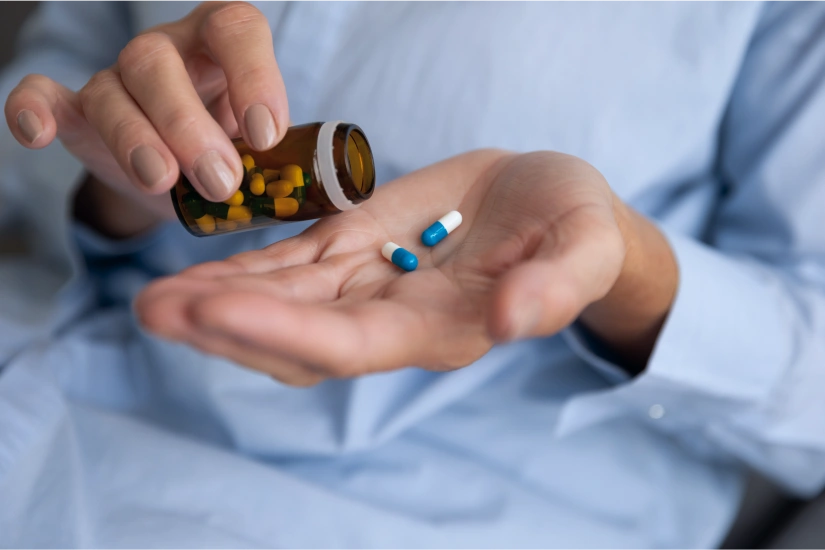24/7 Helpline:
(866) 899-111424/7 Helpline:
(866) 899-1114
Learn more about PTSD Treatment centers in Lake Monroe
PTSD Treatment in Other Cities

Other Insurance Options

WellCare Health Plans

Highmark

CareSource

Carleon

Providence

United Health Care

Self-pay options

Cigna

UMR

Meritain

Health Partners

GEHA

Regence

Anthem

Ambetter

PHCS Network

Access to Recovery (ATR) Voucher

Multiplan

Magellan Health

Evernorth

South Seminole Hospital – Behavioral Health
South Seminole Hospital, located in Longwood, Florida, provides behavioral healthcare and comprehens...

Comprehensive Addiction Solutions
Comprehensive Addiction Solutions is a private rehab located in Altamonte Springs, Florida. Comprehe...

Hope for Tomorrow – Mental Health
Hope for Tomorrow – Mental Health is a private rehab located in Altamonte Springs, Florida. Hope for...

La Amistad Foundation – Lakewood
La Amistad Foundation – Lakewood is a private rehab located in Casselberry, Florida. La Amistad Foun...

Sojourners Recovery Wellness Center
Sojourners Recovery Wellness Center is a private rehab located in Lake Mary, Florida. Sojourners Rec...

The Grove Academy
The Grove Academy is a non-profit organization located in Winter Springs, Florida. The Grove Academy...

Aspire Health Partners – Fernwood Campus
Aspire Health Partners - Fernwood Campus offers outpatient treatment for individuals with alcohol an...























Project Refocus
Project Refocus is a private rehab located in Longwood, Florida. Project Refocus specializes in the ...

Palms Pointe Counseling
Palms Pointe Counseling is a private rehab located in Oviedo, Florida. Palms Pointe Counseling speci...

Human Services and Resources
Human Services and Resources is a private rehab located in Oviedo, Florida. Human Services and Resou...

AA – Alcoholics Anonymous
AA – Alcoholics Anonymous is a non-profit rehab located in Casselberry, Florida. AA – Alcoholics Ano...

Behavioral Support Services
Behavioral Support Services is a private rehab located in Altamonte Springs, Florida. Behavioral Sup...

Grove Counseling Center – Outpatient
Grove Counseling Center – Outpatient is a private rehab located in Longwood, Florida. Grove Counseli...

Our Place of Central Florida
Our Place of Central Florida is a private rehab located in Altamonte Springs, FL. Our Place of Centr...

Clear Path Centers
Clear Path Centers is a private rehab located in Longwood, Florida. Clear Path Centers specializes i...

Wellness Recovery Center
Wellness Recovery Center is a private rehab located in Altamonte Springs, Florida. Wellness Recovery...

Orlando Behavioral Health – OBH
Orlando Behavioral Health is a private counseling clinic located in Lake Mary, Florida. Orlando Beha...

Aspire Health Partners – Women’s Residential
Situated in Casselberry, Florida, Aspire Health Partners – Women’s Residential is a drug and alcohol...

Quest Counseling Center
Quest Counseling Center is a private rehab located in Altamonte Springs, Florida. Quest Counseling C...

The Grove Counseling Center
The Grove Counseling Center is a residential substance use disorder recovery program for adolescents...

Intensive Treatment Modalities Group
Intensive Treatment Modalities Group is dedicated to provide mental health treatment for adult and a...

My Freedom Quest
My Freedom Quest is a private rehab located in Longwood, Florida. My Freedom Quest specializes in th...

WhiteSands Treatment – Longwood
WhiteSands Treatment – Longwood is a private rehab located in Longwood, Florida. WhiteSands Treatmen...

Addiction Bible Scriptures
Addiction Bible Scriptures is a private rehab located in Oviedo, Florida. Addiction Bible Scriptures...

Creative Counseling
Creative Counseling is a private rehab located in Lake Mary, Florida. Creative Counseling specialize...

STEPS
STEPS (which stands for Specialized Treatment, Education, and Prevention Services, Inc.) is a Cassel...































































